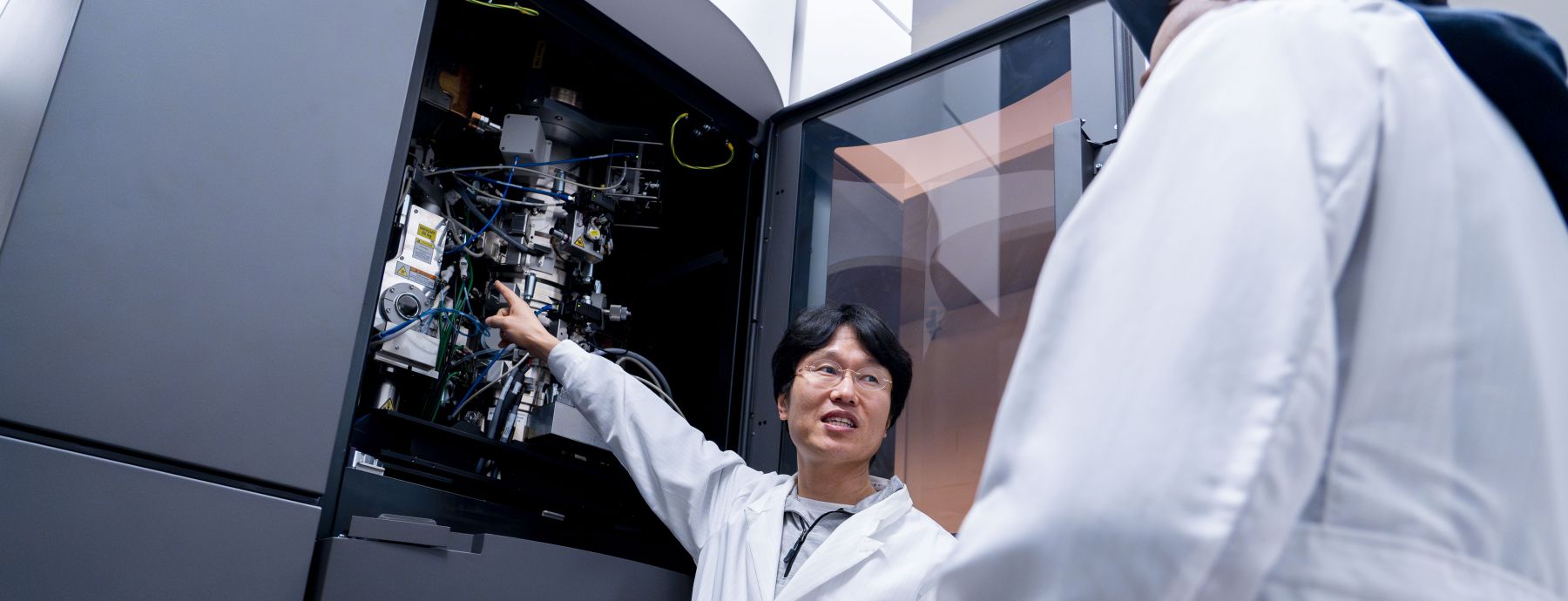A joint venture between the Huck Institutes of the Life Sciences and the Materials Research Institute, the Cryo-Electron Microscopy Facility houses a one-of-a-kind FEI Titan Krios microscope that offers uncompromised data collection for the life sciences while incorporating materials science applications. Specifically, the facility allows for fully-automated atomic-resolution single-particle and high-contrast tomography tilt-series data collection. Additional microscopy components permit a full range of materials science applications, including EELS, STEM, and DPC.

Cryo-Electron Microscopy Facility
Creating super high-definition 3D images of atoms and molecules
News
Huck researchers reflect on the 2024 Nobel Prize in Chemistry
This month, the Nobel Prize in Chemistry was awarded to three scientists credited with historic breakthroughs surrounding proteins and their structures. Three Huck researchers working on similar challenges chime in with their thoughts.
Craig Praul named director of Huck Core Facilities
Joining Praul on the new leadership team are Rajeswaran Mani, director of the Flow Cytometry Facility, and financial specialist Kelly Foster.
Biochemist selected as Innovation Fund investigator by Pew Charitable Trusts
Katsuhiko Murakami, professor of biochemistry and molecular biology at Penn State, has been selected as a member of the 2023 class of Innovation Fund investigators by the Pew Charitable Trusts.
News
Huck researchers reflect on the 2024 Nobel Prize in Chemistry
This month, the Nobel Prize in Chemistry was awarded to three scientists credited with historic breakthroughs surrounding proteins and their structures. Three Huck researchers working on similar challenges chime in with their thoughts.
Craig Praul named director of Huck Core Facilities
Joining Praul on the new leadership team are Rajeswaran Mani, director of the Flow Cytometry Facility, and financial specialist Kelly Foster.
Biochemist selected as Innovation Fund investigator by Pew Charitable Trusts
Katsuhiko Murakami, professor of biochemistry and molecular biology at Penn State, has been selected as a member of the 2023 class of Innovation Fund investigators by the Pew Charitable Trusts.
Essential process for SARS-CoV-2 viral replication visualized
During the replication of the SARS-CoV-2 virus, a long string of connected proteins is cleaved apart into individual proteins. This process is interrupted by an FDA-approved drug to treat COVID-19; however, the mechanistic details of this cleavage process are still unclear. Now, a team led by researchers at Penn State has produced the most detailed images to date of this process, revealing that these proteins are cleaved in a consistent order likely dictated by the structure of the protein string.